Tatu, a caring and loving student in her final year of secondary school at Smith Campus, felt compelled to help the newly enrolled students with their transition into secondary school at St Jude’s. With hopes to provide the warmest welcome to these new students, Tatu wrote a Student Mentorship Program proposal and presented it to her teacher.
“Initially, a few students got together and started helping and mentoring all the new students coming into the campus. However, this year I took it upon myself to write and present this mentorship program to make it official and recognised by the school administration,” Tatu explains.
The Student Mentorship Program provides an easy transition and academic support for newly enrolled Form 1 boy students at Smith Campus. Part of the program is to assist in teaching English to the new students so they can communicate and adapt to an English-medium school with ease.
“I shared and presented the proposal to both the Career Guidance and English Departments. The teachers looked at the proposal and gave me the go ahead to execute the program,” Tatu says.
In the proposal, Tatu suggests that the volunteering students from Form 5 and 6 should, supervise and be responsible for several new Form 1 students.
“This year we have a total of 78 new Form 1 boy students. It’s a big group, so we’ve divided them into several groups. Each volunteer supervises a group of between six and eight students.”
As a leader of the program, Tatu makes sure that all volunteer students are guided and are able to manage the progress of each of the new students within their group.
“I prepare lesson plans. Once the lesson plan is approved by the Language Department, I share the plans with the rest of the students who are assisting with the mentorship. The plans are then distributed to the new students.”
“We use after school hours and the weekends to teach the new students. We also give them different assignments. One of the assignments is to do presentations in front of the class. This is to help them build their confidence and we also get to assess their progress,” she further explains.
Being a Form 6 student, Tatu is looking forward to doing her final exams. But, more importantly she is excited to see how all the new students will perform in six months with written and spoken English after successful completion of the mentorship program.
“As a leader of this program, I go around each group and seek students who perhaps take longer to understand and I have a one-on-one lesson with them. The aim is to make sure that, after the first three months, all these students are competent in English, confident and have settled in.”
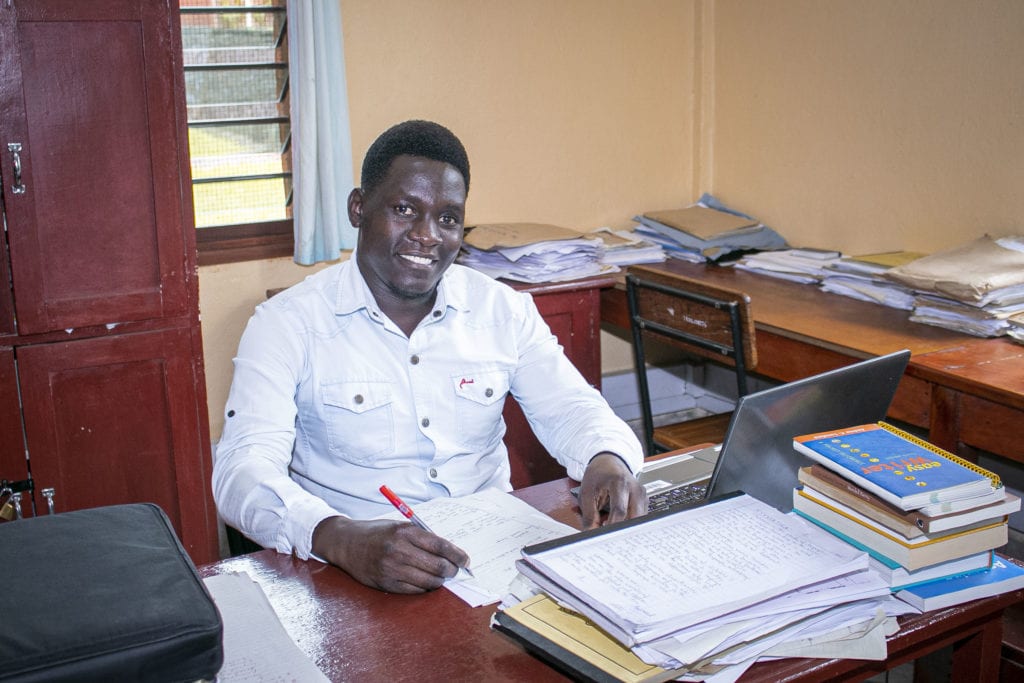
Commending Tatu for pioneering the mentorship program is Mr Mollel, Head of Languages Department, after receiving the proposal from her.
“The Form 1 students we select and enrol from government schools hardly speak English. As teachers, we have to make sure they have the command of the language within six months. That’s why, when Tatu brought us this proposal and presented the modality of the program, we accepted it,” Mr Mollel proudly states.
“Students spend most of the time with their fellow students, so it’s easy for senior students to mentor and guide the new ones,” he added.
Explaining the differences between the set academic program and Tatu’s initiative, Mr Mollel says, “The difference between our academic program and the new proposal is that this initiative has taken a social approach, whereby senior students have more time with the new students… after school hours and on weekends.”
The academic department supports the program by providing books, study materials and assisting in creating and approving lesson plans. Mr Mollel believes that the mentorship project will help the new students learn the language, communicate and settle in more quickly.
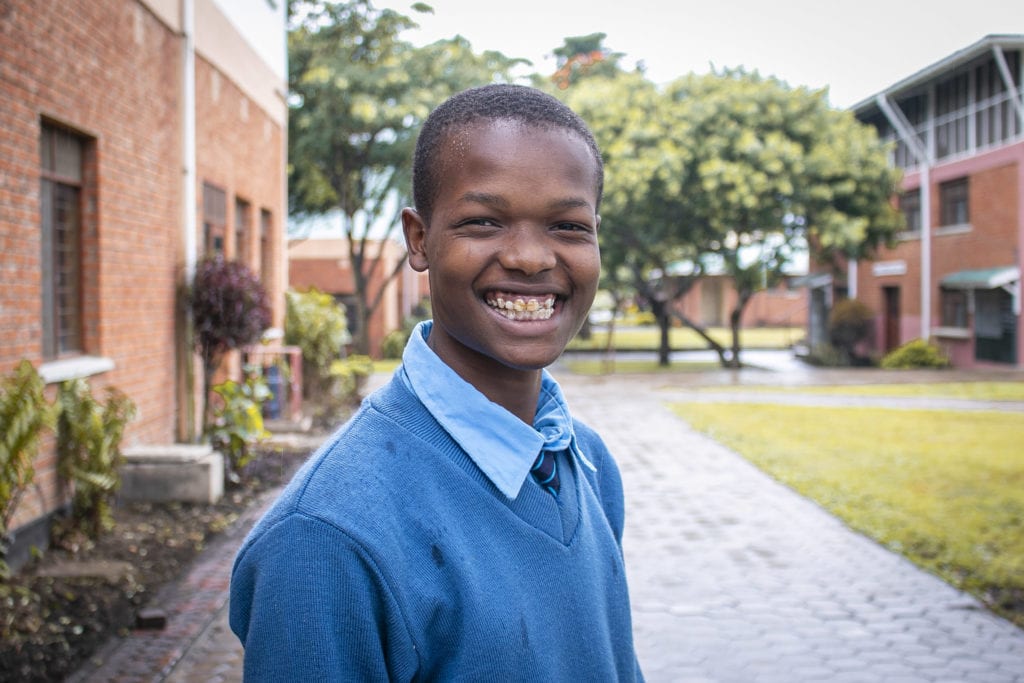
Daniel who joined Form 1 beginning of this year, is a mentee in the program. He’s committed to speaking English and be able to communicate with his peers with confidence.
“I’m still learning the language. Tatu challenges and pushes me to do better and that makes me eager to want to learn more. I hope to be speaking English well by the end of this program.”
Aside from the language lessons, the program aims to engage and teach the new students school values.
“Tatu has taught me to follow the values of the school… Respect, Responsibility, Honesty and Kindness. Her advice is to always put my head down and study hard so I can achieve my goals,” Daniel said.
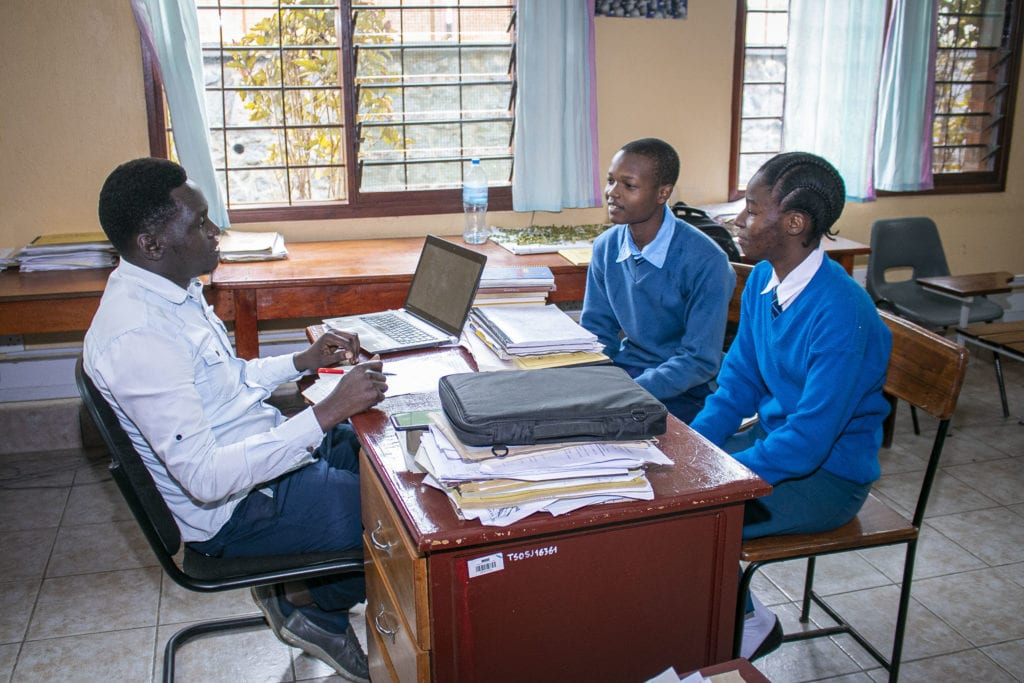
St Jude’s is an English-medium school and it’s committed to making sure that students understand and can communicate effectively in the English language by the time they graduate; nurturing well-rounded future leaders of Tanzania.
***Daniel’s quotes were translated from Kiswahili to English.
“I would like to be a neurosurgeon and an entrepreneur when I complete my higher education,” says Sheila, a Form 4 science student at St Jude Girls’ Secondary School.
Arranging desks and getting ready to give her weekly updates to the teacher, who is also a club mentor and her fellow club members, Sheila explains, “I’m the chairperson of the Entrepreneurship Club. My role is to supervise and make sure all activities are completed on time. I believe as an entrepreneur, you have to be responsible. So, part of the responsibility is to complete assignments regardless of which class level you are in.”
Entrepreneurship Club is one of the 10 extra-curricular clubs at St Jude’s. This club, started by students, was specifically created to foster their entrepreneurship spirit and equip them with essential entrepreneurship skills.
Explaining the club’s activities, Sheila says, “The club has different activities. We learn about agriculture, designing things like handbags, clothes and art.”
Sheila, who leads a team of 32 club members, believes the knowledge she’s receiving from being a member of the club has had a huge impact on her ability to be able to recognise gaps around her community that she can later turn into business opportunities.
“I always take these skills back home. During my school breaks, I make and sell cards and decorate bottles that people can use for home decoration items. This venture earns me some money that I then use to help my family,” she adds.
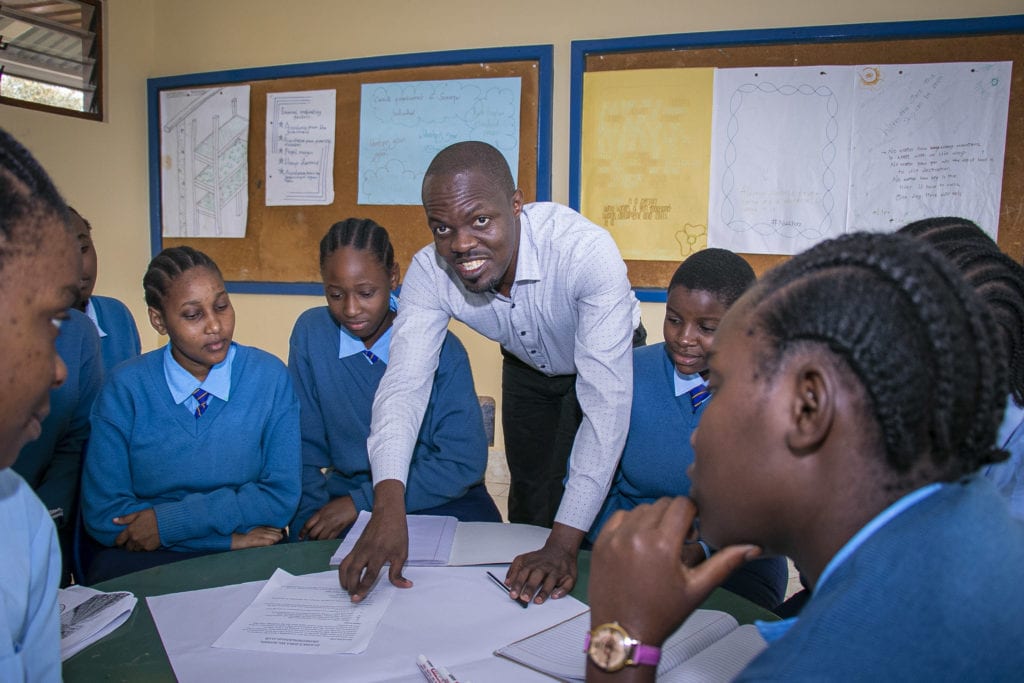
About one third of Tanzania’s Gross Domestic Product (GDP) originates from the small and medium-sized enterprises (SMEs) sector.
“Entrepreneurship Club is a forum where students get to meet, network and share ideas. They also get to practice entrepreneurship skills in real life after learning theoretically in class,” states Mr Ally, Head of Business and ICT.
The club provides a learning-by-doing environment where students learn different business skills, such as the scope of entrepreneurship, developing business plans and advice on creating a start-up. Students also participate in different projects, such as horticulture.
“Last year our project was based on horticulture. The students cultivated kale and we were able to supply the school with more than 100 kilograms of the vegetables,” Mr Ally says proudly.
“With the high rate of unemployment in Tanzania, we equip our students with know-how in business planning, creativity skills, critical thinking and importance of teamwork. I believe this will make our students ready to tackle the world head-on,” he adds.
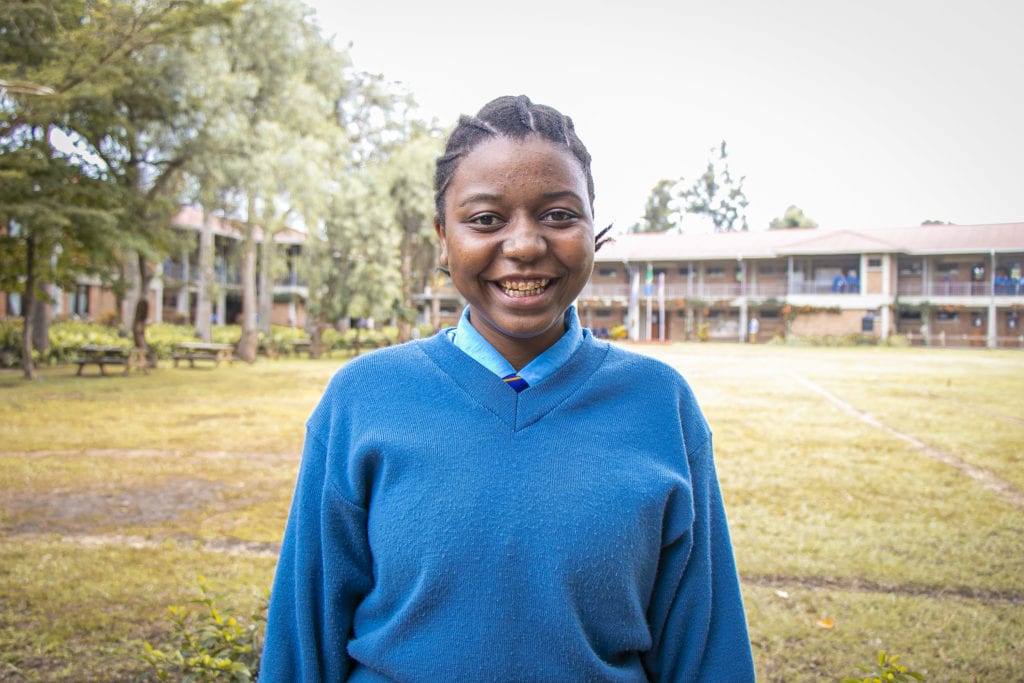
As a member and a treasurer of the club, Leila, Form 4, has always had a passion for entrepreneurship. She believes that she’s now more enlightened about entrepreneurship than before she joined the club.
“Being an entrepreneur is about passion. If you want to do something you must do it. I try and apply the skills I’m learning from the club when I go home,” Leila said.
She adds, “I have a small piece of land at home that I’m using to grow vegetables. With the harvest I get, I’m now able to sell the vegetables and the remainder is used as food for my family. This has had an impact on my family’s life, as they receive some of the money I make for small errands.”
Leila hopes that one day she’ll be able to establish her law firm and provide employment within her community.
“Every class I attend broadens my mind. I get to know and learn useful real-life skills. I’m confident that once I complete high school, with the skillset I’m getting, I will be able to run my law firm,” she says confidently.
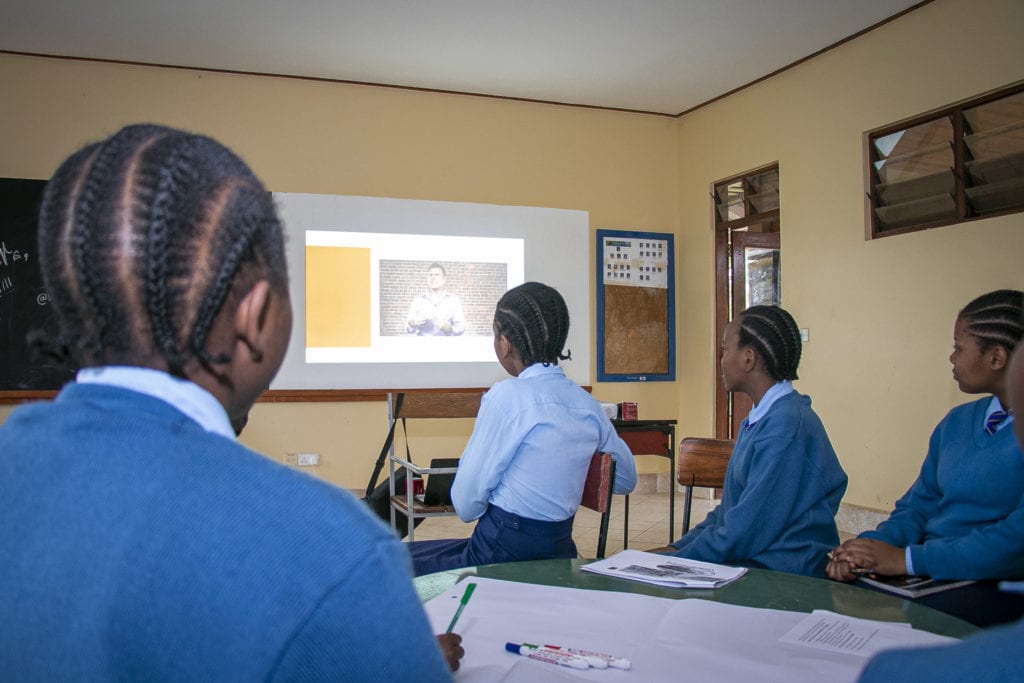
St Jude’s encourages clubs like the Entrepreneurship Club to foster creativity, educate, and improve students’ skills in creating, collaborating and communicating to prepare students to become successful and innovative leaders of Tanzania.
Excursions are a highlight of the school year and an exciting time for students at The School of St Jude as they anticipate a fun visit to a museum, national park, educational or historic site.
Field trips are an important part of the school’s curriculum, encouraging experiential learning and allowing students to better understand theoretical concepts.
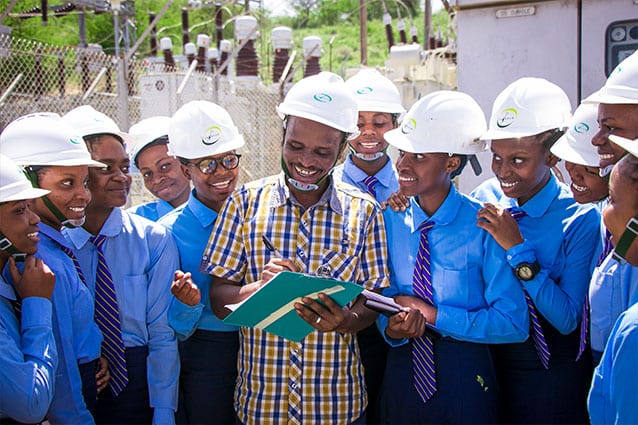
Mr Sangito, who oversees excursions at the girls’ secondary school, believes field trips are important in students’ learning.
“Excursions help students in practical learning, meaning the things they are learning theoretically in class, they get to experience that first-hand by visiting different sites,” says Mr Sangito.
Mr Sangito, who also oversees three subjects; history, geography and civics, explains that for a class studying history, a trip to a historical site or a museum can expose the students to incredible archives and antiquities they would otherwise only view in a page of a book.
“For example, if it’s history, then we take students to historical sites to go see and read historical facts, see what happened and explore the archives. If its geography then we take the students to see landscapes such as rivers, lakes…”
Mr Sangito explains how excursions are planned. “We have fixed sites for every level. For example, this year we are starting with the candidate students, these are Form 2 and Form 4. Because of their tight schedules and they are expected to do their National Examinations end of this year, they’ll be going on a field trip first. Then later we’ll finish the excursion cycle with Form 1 and Form 3.”
“We have a total of four trips a year so that every level can go to at least one excursion. However, based on department needs, other trips can be arranged. For example, school clubs can request for a field trip and a responsible department can look at the request and organise a trip,” he adds.
Before students embark on any excursion, a lesson is arranged so students understand the purpose of the experience and are also prepared for the trip.
“One day before the trip, we provide students with questionnaires and guide them on questions they should ask during the trip. When they come back they are then supposed to fill in the questionnaires and write a field report,” Mr Sangito explains.
He adds, “Excursions reveal the world to the students. It motivates their career and career choices. You just never know what they’ll be interested in once they visit a heritage site or factory.”
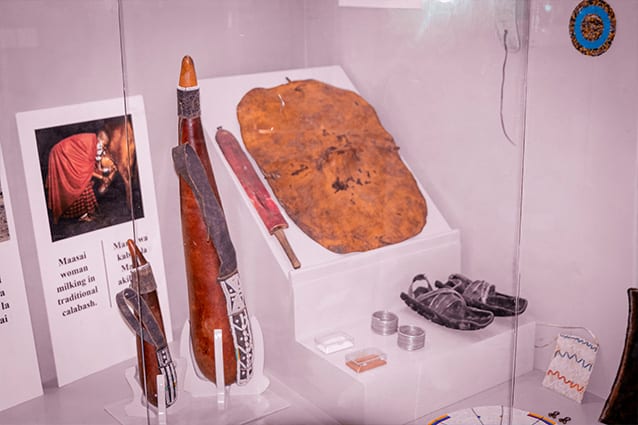
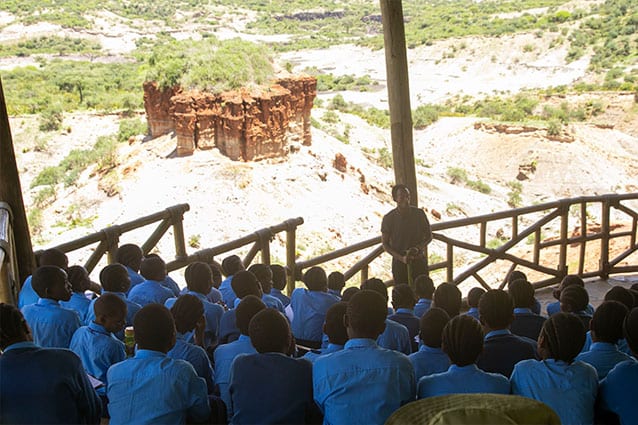
Still excited from her excursion and new knowledge, Juliana, a Form 2 student shares her field trip experience.
“We went to the Olduvai Gorge. I had an amazing time,” she says.
She adds, “I learnt the actual pronunciation of ‘Olduvai Gorge’. It’s actually ‘Oldupai Gorge’, pronounced with a ‘P’ and not ‘V’, which was exciting to know. My highlight was walking to the Gorge. Getting to touch it and learn about its history and geographical properties was eye-opening.”

“Our excursion was at Nyumba ya Mungu Dam,” says Nasra, a Form 4 science student.
Nyumba ya Mungu which means House of God in Kiswahili, is a man-made reservoir in the Kilimanjaro region, Northern Tanzania. The reservoir provides hydro-electric power and serves as a source of irrigation and fishing.
Describing the relevance of the field trip, Nasra says, “As a science student, this trip has inspired me to learn more about hydro-electric power and now, more than ever I’m motivated to be an engineer.”
Excursions are memorable, and immerse students in learning by doing to broaden their perspective. By giving students a first-hand experience, the school builds their knowledge base and encourages students to connect with the world in a new way.
Always smiling and ready to welcome you into his office is Mr Tsingay, Deputy – Academics and Registration at Smith Campus. He’s been working for St Jude’s for more than seven years and says he’s never had a dull moment.
“A day at St Jude’s is usually very short and very busy. We have many students and, for that reason, we have many subjects to teach and things to do; I can confidently say more than any school I’ve ever worked for,” Mr Tsingay says.
As well as being a Deputy, Mr Tsingay also teaches geography; a wearer of many hats must therefore have their day meticulously planned.
“Before I leave home, I make sure my day is well planned and I have my to-do list ready. I’ve created a to-do list template that I use every day which helps me plan on a weekly and monthly basis,” Mr Tsingay describes.
He adds, “Apart from the regular classes that I serve, I also have other duties that I have to complete in the Academics and Registration Department.”
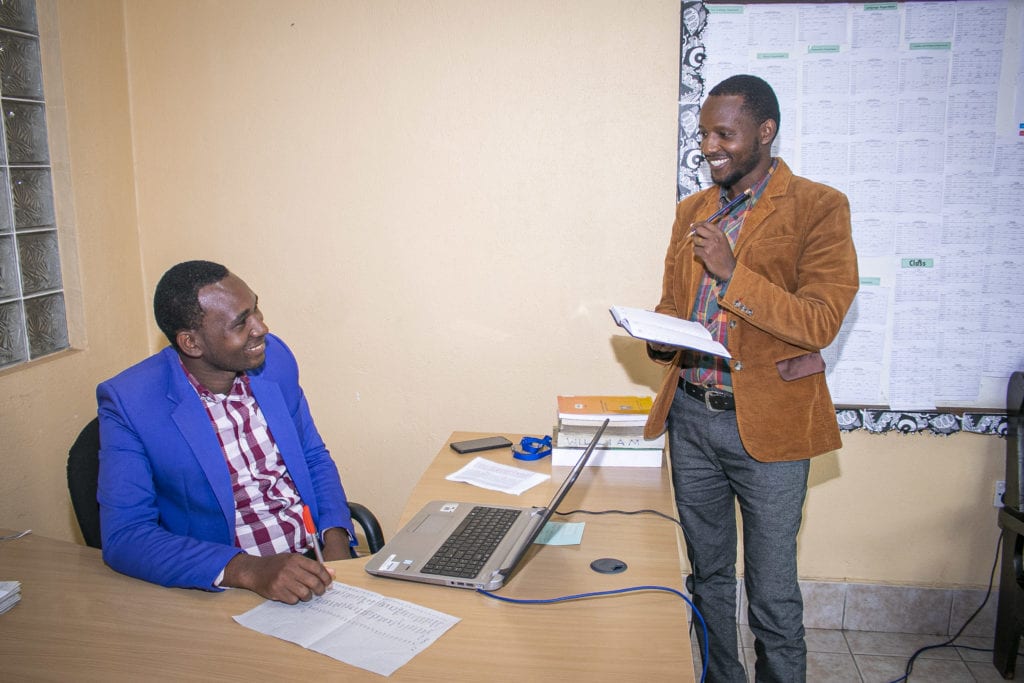
Depicting his regular day at St Jude’s, Mr Tsingay says that it includes making sure the teaching and the learning process runs smoothly.
“I have to make sure teachers and students are in classes, the timetable is ready for everyone to respect and follow and to ensure all exams are done as per the timetable created,” Mr Tsingay explains.
He further adds, “My role doesn’t end there, I’m also responsible for the professional development of our staff. The staff have to be regularly updated with information. I also make sure students are being registered and identified by the Tanzania National Examination Board.”
Mr Tsingay remains motivated throughout his journey here at St Jude’s and his source of drive comes from his love of research.
“Doing research is my passion. Research is all about evaluation and results and that’s what keeps me going. For instance, by evaluating our performance’s strengths and weaknesses, it gives us a sense of direction of where we need to head to get a successful outcome,” he exclaims.
St Jude’s has teachers and Head Office staff from different walks of life, and it’s this diversity that first attracted Mr Tsingay to join the school.
“The diversity of students and staff is amazing at St Jude’s. Everyone here is from different parts of the country and the world, with different educational backgrounds and nationalities. Meeting people from different cultures and backgrounds has helped me gain the experience I have today. Learning through apprenticeship has built me to be who I am and has kept me moving,” Mr Tsingay says with a smile.
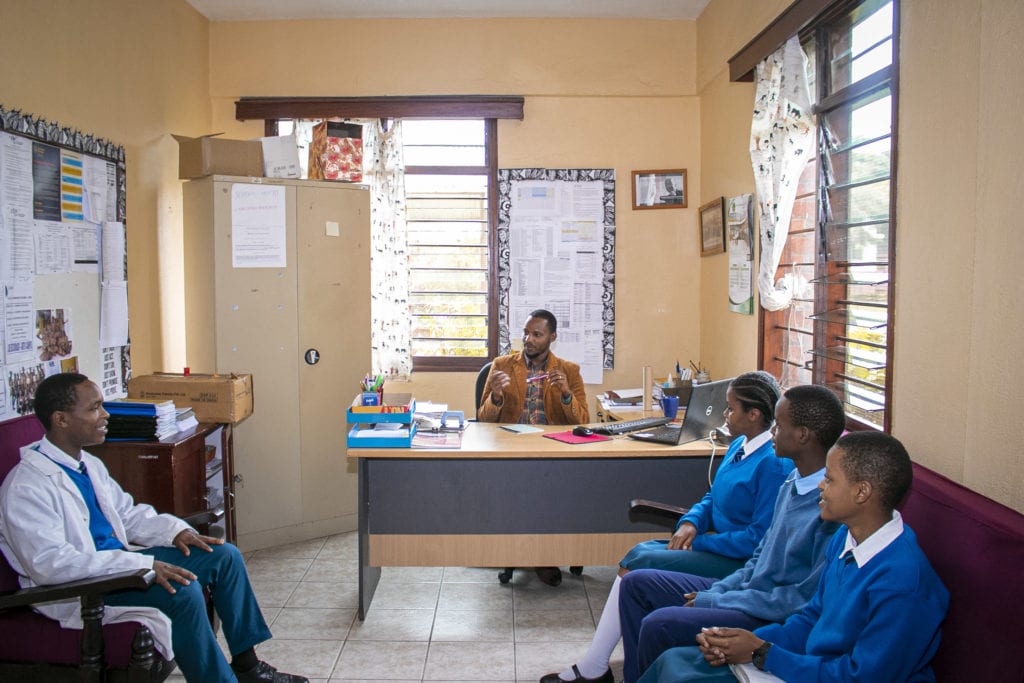
Sharing his favourite moment at St Jude’s, Mr Tsingay says he loves the Science Day, an event that’s organised annually for students to showcase their creativity in science projects.
“I enjoy the Science Day and love motivating the students to take part. Science Day is a great and transformative event for our students’ minds.”
Mr Tsingay joined St Jude’s as a fresh graduate and he’s gradually worked his way up to where he is today, crediting his achievements to the school’s environment, students and the people he has met throughout his time at the school.
St Jude’s is an equal opportunity school and encourages people from all walks of life to apply for positions at the school. The school is lucky to have teachers, like Mr Tsingay, who devote their time and knowledge to the students and work closely and cooperatively with fellow academic staff.